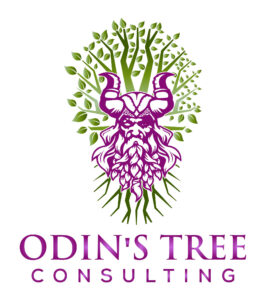In today’s fast-paced world, where technology continues to transform the way we work, it is tempting for organizations to turn to automated systems to sift through the mountain of resumes they receive. With the arrival of COVID and a boom in remote hire, the use of ATS has been relied upon to do most of the heavy lifting in recruitment. While these systems can streamline the hiring process, it is crucial to recognize the importance of human evaluation in assessing candidates’ qualifications and potential. This article will highlight the key reasons why organizations should prioritize viewing resumes over relying solely on automated systems.
1. Contextual Understanding
Automated systems are designed to scan resumes for specific keywords and criteria, often resulting in a narrow evaluation that fails to capture the broader context. By relying solely on algorithms, organizations risk overlooking qualified candidates who possess valuable skills and experiences that may not align perfectly with predetermined criteria. Human evaluators, on the other hand, can assess resumes holistically, taking into account the candidate’s overall background, achievements, and potential fit within the organization.
2. Identifying Transferable Skills
Resumes are not just a checklist of qualifications; they reflect a candidate’s journey, growth, and diverse experiences. Automated systems may struggle to recognize the transferability of skills acquired in different contexts. Human evaluators, however, possess the ability to identify and appreciate the value of transferable skills, which can be crucial for candidates who may have unconventional career paths or who are seeking to transition to a new industry. This nuanced understanding can lead to the discovery of hidden talents and the identification of candidates who possess the potential to excel in roles that may not fit traditional molds.
3. Uncovering Soft Skills
While automated systems excel at processing hard skills, they often fail to evaluate soft skills adequately. Soft skills, such as communication, teamwork, problem-solving, and adaptability, are essential for success in the modern workplace. These skills are often best assessed during a personal interview or through thoughtful evaluation of a candidate’s resume. Human evaluators possess the ability to discern and appreciate the significance of these skills, as they can infer qualities such as leadership potential, emotional intelligence, and cultural fit. Automated systems, on the other hand, lack the capacity to evaluate these critical aspects accurately.
4. Avoiding Bias and Discrimination
Automated systems, despite their sophistication, are not immune to bias and discrimination. Algorithms are only as unbiased as the data they are trained on, and if that data contains inherent bias, it will be reflected in the system’s evaluations. Human evaluators, however, can apply a fair and equitable lens to the resume evaluation process, ensuring that candidates are assessed solely on their qualifications and potential. This human touch helps organizations create a more diverse and inclusive workforce, which has been proven to enhance innovation, productivity, and overall performance.
Conclusion
In a world increasingly driven by technology, organizations must recognize the limitations of automated systems in assessing candidates’ qualifications and potential. While these systems can aid in streamlining the hiring process, they should not replace the crucial role of human evaluators in thoroughly reviewing resumes. By prioritizing human evaluation, organizations can gain a deeper understanding of candidates, identify transferable skills, appreciate soft skills, and avoid bias. Ultimately, this approach leads to more informed hiring decisions and the cultivation of a talented, diverse, and high-performing workforce.




